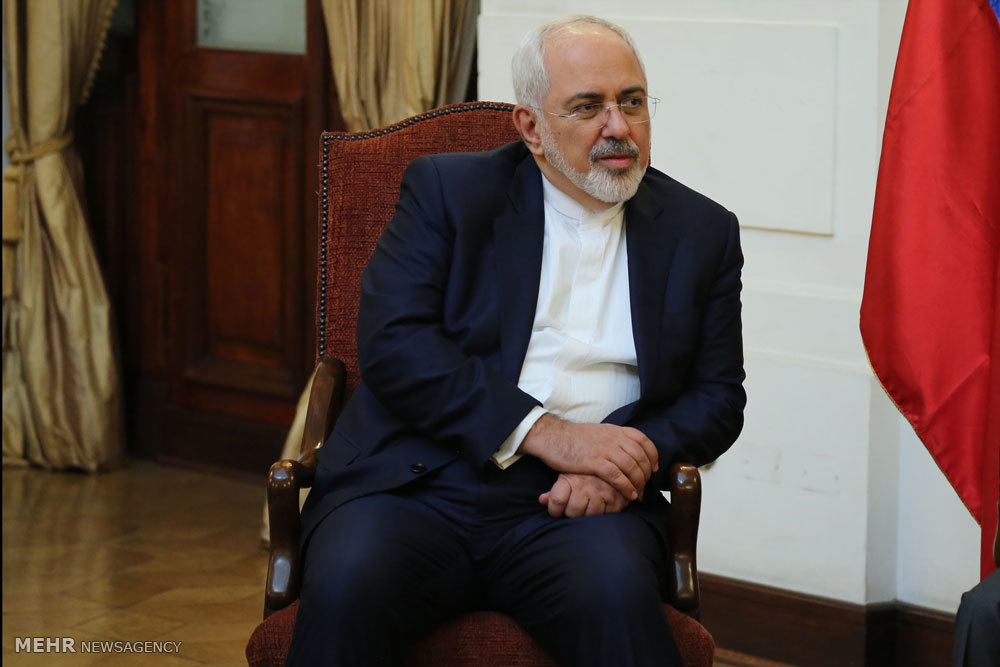FM: Extension of Iran sanctions proves lack of U.S. credibility

TEHRAN – Iran’s Foreign Minister Mohammad Javad Zarif said on Saturday the U.S. Senate vote to renew the Iran Sanctions Act (ISA) indicates that Washington is not reliable enough to deliver its commitments.
"To the world community, the extension of sanctions against Iran shows the unreliability of the American government," ISNA quoted Zarif as saying upon his arrival in India.
On Thursday, the U.S. Senate overwhelmingly voted 99-0 to extend sanctions against Iran for another ten years under the Iran Sanctions Act, in place since 1996.
The bill had already been passed two weeks ago by the House of Representatives with a landslide margin of 419-1, now at Obama’s desk for final approval.
If not extended, the ISA expires by the end of 2016.
However, U.S. Congress members will see the ISA as a fast-track mechanism for any U.S. president to reinstate sanctions against Tehran.
Iran’s FM Zarif says “To the world community, the extension of sanctions against Iran shows the unreliability of the American government.”
The U.S. administration don’t see the extension in breach of the nuclear deal.
“And while we don’t think an extension is necessary, we’ve also been clear that a completely clean extension, as this one is, is entirely consistent with our commitments in the JCPOA,” U.S. State Department spokesman John Kirby said on Friday.
Iran says the sanctions extension is a violation of the last year’s nuclear accord with six world powers which allowed Tehran sanctions relief in exchange for a limited nuclear program.
Zarif also dismissed the move, saying it lacks any major “executive force” so strong to thwart trade with key international players such as India, China, and Japan.
“It will have no effect as far as it is related to India, China and Japan, and for third countries the extension makes no difference.”
Zarif will take formal visits to China and Japan after his Indian trip.
Iran has vowed to retaliate against the move if signed into law by President Barack Obama.
On Friday, Iran’s Foreign Ministry issued an announcement in which it rapped the measure as a breach of the terms of the nuclear accord.
“As announced repeatedly by the country’s senior officials, the recent bill passed by the U.S. House of Representatives and Senate to extend sanctions against Iran runs counter to BARJAM (JCPOA) and the U.S.’s commitments under international law on non-interference in domestic and international relations of other countries,” read part of an announcement.
Previously, Leader of the Islamic Revolution Ayatollah Ali Khamenei, who has the final say on Iran’s foreign policy, had warned the anti-Iran act, if passed and enforced, “would certainly be in breach of BARJAM.”
Also, Iran’s nuclear chief Ali Akbar Salehi, who helped finalize the deal, said a week ago plans had been envisioned in the event Washington failed to make good on its JCPOA commitments, seeing the ISA “a clear violation” of the nuclear deal.
The most explicit stance was taken by Alaeddin Boroujerdi, head of the Iranian parliamentary committee for national security and foreign policy.
“If America extends sanctions and violates BARJAM (JCPOA), we increase production and enrichment of uranium up to 190,000 SWU,” he said on Tuesday.
AK/PA
